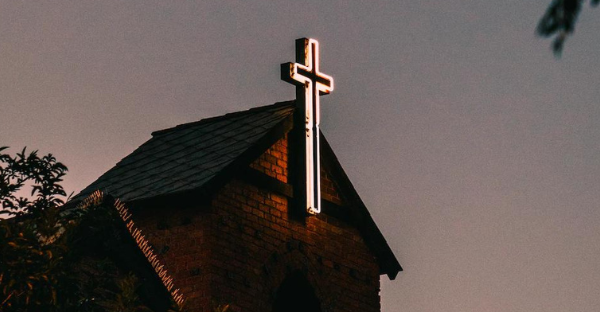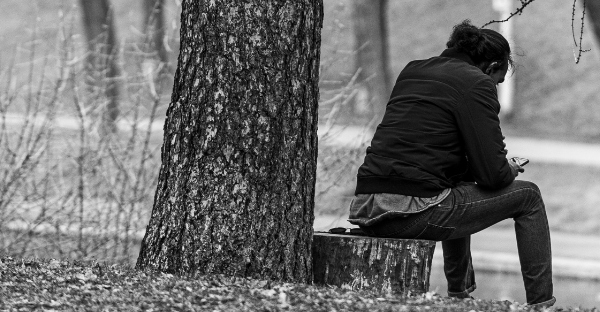My anthropology room adjoins my philosophy room with a large opening between them. In fact, it’s hard to tell where the dividing line is between the two. Anthropology is a very broad field that studies humanity, both past and present. My weakest collection in the house is probably my lack of attention to humanity’s past. I tend to place much of that in my history room. I’m sorry to say that I haven’t assembled much in my anthropology room that concerns the relationships between us humans, apes, and the early hominids that were presumably somewhere between the two. My room décor focuses more on central issues about humans in the present.
This room has three notable features: the fireplace of freedom, the shelf of the self, and the mantle of meaning. I am drawn to God because of the light He shines on all of these.
(1) First, look at the fireplace of freedom in the corner. I believe that God valued human freedom and created us to exercise it. (We’ve made a mess of it, but we’ve got it.) We have used our freedom to choose all kinds of evil things that have tragically affected nature, others, and ourselves. Fortunately, God had a plan for what to do about it. Part of that plan requires that we “repent”—that we change our minds and our desires, try our best to follow God, and accept the gift of Jesus to cover our sins in God’s sight. Repentance itself, however, presupposes the presence of human freedom. With a creator God and His message to humanity, all of this makes sense to my mind and to my deepest intuitions.
But without such a creator God, the very notion of human freedom seems doomed. It may come as a surprise—even as a shock—to some of you to hear how much human freedom is categorically rejected by many intellectuals. Freedom is an illusion. We may think we are free, but we are not. The atheist Alex Rosenberg puts it this way: “The fact that the mind is the brain guarantees that there is no free will. It rules out any purposes or designs organizing our actions or our lives.” The notion of free will—the idea that we can act on our own plans or purposes—is false. “There are no plans,” says Rosenberg. “That’s just more of the illusion Mother Nature exploited for our survival” (See The Atheist’s Guide to Reality, 2011, Kindle location pp. 195, 238).
I am convinced that Rosenberg is correct! He is correct, that is, given his atheistic framework. If the mind is no more than the brain—if our actions are essentially no more than stimulus-responses—if we are ultimately reducible to matter in motion, then freedom is an illusion. But for myself, I will choose to reject the illusion of freedom.
(2) Next, notice the long shelf just behind you. I call it the “shelf of the self.” The main question is this: Is there a self on the shelf or not? Our common intuitions suggest that there is a “self” to us—something that somehow persists through time that constitutes our unchanging identity even though many of our physiological characteristics change significantly. For instance, I strongly believe that I’m still the same person—the same “self”—that I was when I was seven. But I can guarantee you that I have changed pretty radically since then. (No comments about weight or athletic potential, please.)
My belief in a creator God makes sense of this in a way that agrees with my deepest intuitions. I am a unique individual who is not reducible to the matter of my body. This even conceptually helps me understand how there might be some conscious existence after physical death. Christian theology speaks of it in terms of the “soul” or “spirit.”
But like the case of human freedom, without a creator God, the reality of the self is little more than illusion. Rosenberg is one among many who acknowledge this: “The fact that the mind is the brain … excludes the very possibility of enduring persons, selves, or souls that exist after death or for that matter while we live” (Ibid., p. 195).
In addition, a very prominent perspective in Western philosophy that derives its ideas from David Hume admittedly has no philosophical basis for the existence of the self. If we demand that everything we know must be empirically accessible—as Hume did—then we have no justification for thinking that there is such a “self.” We can’t directly observe, hear, smell, touch, or taste the self. Why should we think that it exists?
Furthermore, some approaches in Eastern philosophy have a very similar view. Buddhism, particularly, emphasizes the concept of anatta—the notion of “not-self” or the illusion of the self. In this respect, it sharply differs from the Hindu position that speaks of the “atman” as the “true self” that persists throughout the multitude of one’s reincarnations.
The big point is this: I don’t think that it’s merely coincidental that atheism, Humeanism, and Buddhism—none of which utilize a transcendent creator in their respective anthropologies—all reject the reality of the self. Because of this, speaking for my-SELF, the notion of God is much more satisfying to my intellect and to my inner self. God’s creation of unique “selves” makes much more sense of my seemingly undeniable experiences of who I am.
(3) Last, I want to highlight the mantle of meaning that is just above the fireplace of freedom. If you have been following my reasoning, you should already be able to predict where I’m headed with this. A personal creator God makes possible genuine and permanent meaning for every individual who has been created in God’s image.
Without such a creator God, we must either admit that such meaning simply does not exist (Nihilism), or we can try to create some semblance of meaning by (a) defining ourselves through our choices (Jean Paul Sartre), (b) revolting against the absurdities of the human condition (Albert Camus), (c) using science and technology to improve the human condition, (d) finding temporary pleasures in life, or (e) pursuing some other path to meaning that helps us forget that there is no real meaning.
If there is any possibility of finding meaning in any ultimate sense, it’s quite clear that I’m not going to find it in this world or in myself. Whether others acknowledge that or not, I will say that God provides me that kind of meaning. And He offers that kind of meaning to everyone who truly wants it.
Go to the Tour Welcome and the List of Rooms.
Go to the Next Room, my Cosmology Room.





